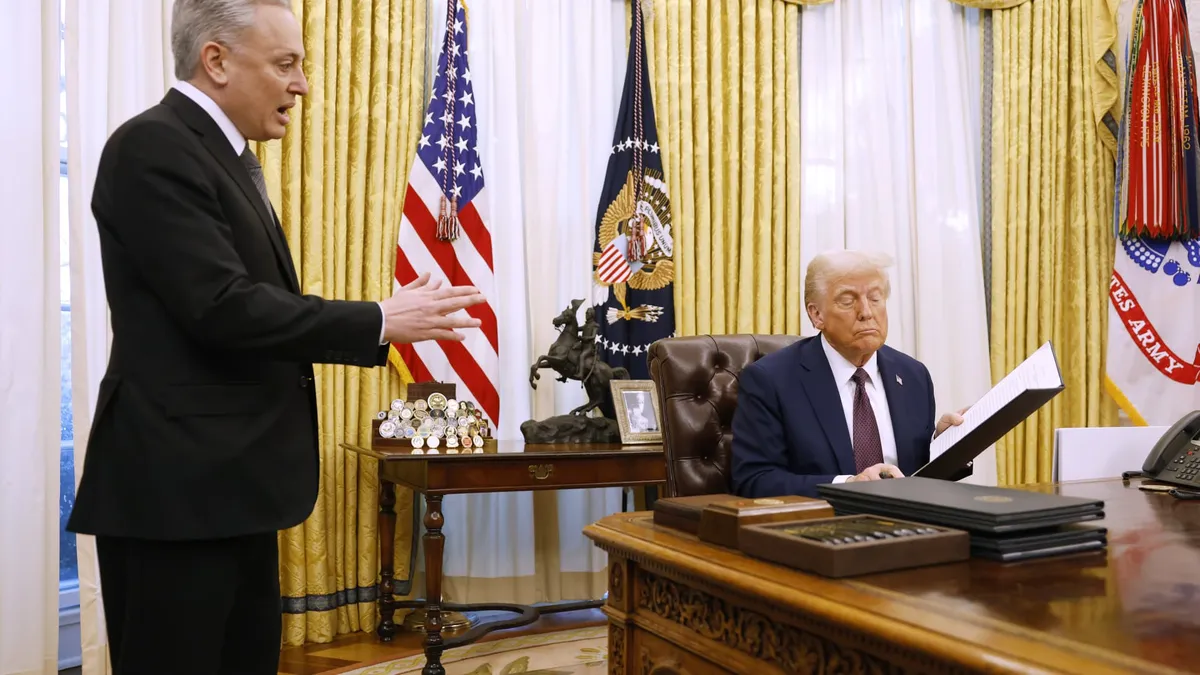
The alliance between former President Donald Trump and the crypto community is facing its first significant challenges, primarily due to recent developments in the digital currency landscape. Trump has relied heavily on crypto executives and investors to fuel his campaign for the 2024 election, promising to reward this support by significantly reducing regulations and transforming the United States into the global epicenter of cryptocurrency.
President Trump kicked off his campaign with a series of bold moves, including signing an executive order to form a working group focused on digital assets and issuing a pardon for Ross Ulbricht, the creator of Silk Road. Additionally, the Securities and Exchange Commission (SEC) concluded its protracted investigation into Coinbase, a decision that was celebrated by many in the tech community who had backed Trump's candidacy.
However, the tide began to turn over the weekend when Trump announced on Truth Social the establishment of a strategic crypto reserve for the United States. This reserve would not only include bitcoin but also several other digital currencies such as ether, XRP, Solana’s SOL token, and Cardano's ADA. The majority of Trump's crypto supporters had anticipated a focus solely on bitcoin, which is considered a safer and more stable investment by many in the crypto community.
Critics of Trump's expanded reserve plan argue that by including riskier assets, the former president would be misusing taxpayer funds to invest in cryptocurrencies with uncertain long-term value. This has raised concerns among those advocating for a significant reduction in government spending, aligning with Elon Musk’s push for efficiency within the government.
Joe Lonsdale, founder of venture capital firm 8VC and a staunch Trump supporter, expressed his discontent on social media, stating that taxation is theft and criticizing the idea of taxing Americans to fund speculative crypto ventures. In response, David Sacks, a venture capitalist designated by Trump as the White House AI and crypto czar, cautioned against jumping to conclusions, urging skeptics to wait for more details before forming opinions.
Tyler Winklevoss, a well-known bitcoin investor and a prominent Trump supporter, publicly opposed the strategic reserve plan, emphasizing that only bitcoin meets the necessary criteria for such a reserve. This sentiment resonated with other crypto industry leaders, including David Marcus, the former head of Facebook’s crypto initiative, who noted that the majority of non-conflicted industry experts agree with Winklevoss's stance.
As the news of Trump's crypto reserve plan broke, the cryptocurrency markets reacted negatively. Bitcoin dropped approximately 9%, while ether saw a decline of 15%, and other altcoins like XRP and SOL experienced even steeper losses. This downturn was further exacerbated by Trump's confirmation of impending tariffs, which adversely affected risk-sensitive assets across the board.
Not all reactions were negative, however. Michael Saylor, chairman of MicroStrategy, which has amassed a substantial bitcoin reserve, expressed optimism about Trump's decision to include a broader range of cryptocurrencies, viewing it as a positive step for bitcoin and the U.S. crypto industry overall. Similarly, Jonathan Jachym from Kraken praised the announcement, suggesting it reflects the president's commitment to his promises made to the crypto community.
Despite the backlash, it seems that Trump's broader support among his base remains intact. Many supporters have shifted their focus to other political matters, suggesting that this controversy may not significantly impact Trump's overall agenda. The upcoming first White House Crypto Summit is anticipated to provide more clarity on the strategic reserve and its implications, as investors eagerly await further details.
As the situation develops, the tension between Trump's administration and the crypto community highlights the complexities of navigating political support in a rapidly evolving digital economy.